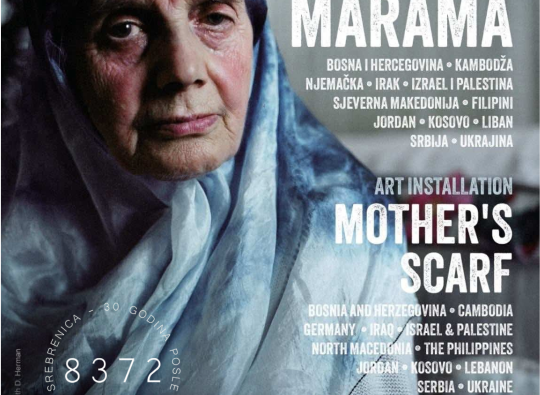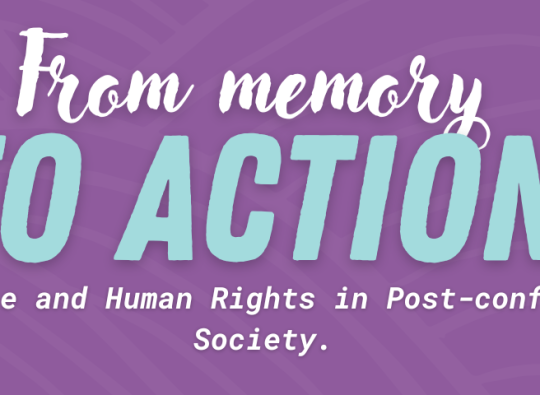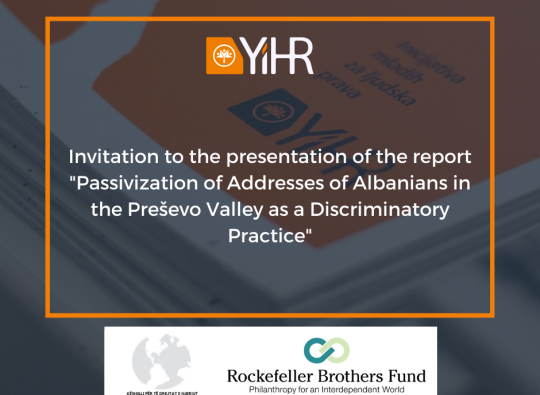With regard to the announced passing of the Bill on the Rights of War Veterans, Disabled War Veterans, Civilian Invalids of War and their Family Members (Bill), human rights organizations and victims’ associations use this opportunity to draw the attention of the public and international community once more to the lack of harmonization of the provisions in this Bill with the mandatory provisions for the protection of human rights, and they call upon the Ministry of Labour, Employment and Veterans and Social Policy (Ministry) to withdraw the Bill from the adoption procedure, and the Government of the Republic of Serbia and the National Assembly to draft and pass a new Bill based on the Model Law on the Rights of Civilian Victims of Human Rights Violations Committed during and in Connection with Armed Conflicts in the Period 1991-2001, which contains normative solutions for the realization of the rights of victims in accordance with international agreements on the protection of human rights and other international standards in the provision of reparation to victims.
The currently applicable Law on Civilian Invalids of War, which is intended to be replaced by the Bill, was passed in 1996. This Law represents an example of legalized discrimination against citizens without precedent in the legal system of Serbia. The Law effectively excludes from the realization of their rights at least 15,000 persons living in Serbia today, who as civilians personally endured violence during the wars or in relation to the wars on the territory of the former Yugoslavia, or who lost close family members in those circumstances. These persons include victims of sexual violence, victims suffering from mental consequences of violence, families of the missing, victims of Serbian forces, victims who suffered on the territory of other countries, and so forth.
The Law has been subject to the criticism of a number of international institutions monitoring the respect for human rights in Serbia for years now. These organizations include: 1) Council of Europe Commissioner for Human Rights, Nils Muižnieks [Report following the visit to Serbia in March this year]; 2) European Commission [2015 and 2014 Serbia Progress Reports; 3) UN Committee on Enforced Disappearances [Concluding Observations on the application of the Convention on Enforced Disappearances in Serbia, 2015]; 4) UN Human Rights Council Working Group for Enforced Disappearances [Report following the visit to Serbia in June 2014]; 5) UN Human Rights Committee [Concluding Remarks on the application of the International Covenant on Civil and Political Rights in Serbia, 2011], et al.
Despite all this, in December 2014 the Ministry presented a Bill which contains all of the shortcomings of the existing legal framework. The Bill was also drafted without any sort of participation of victims’ associations and organizations dealing with the protection of victims’ rights. Public debate about the Bill lasted for twenty days only. As for the numerous remarks and comments made by the Humanitarian Law Center, including the request for the withdrawal of the Bill and the drafting of a new Bill, the Ministry sent a letter to the HLC, only in March of this year, informing it not about the conclusions reached on the public debate, which have never been publicized, but simply that the comments sent would “be present during the process of drafting the final version of the Bill”.
Minister Aleksandar Vulin has recently stated, when faced with the interest expressed by the media for the marking of the anniversary of the crime in Sjeverin and the non-recognition of the status of civilian victims of war to the victims of this crime, that the Ministry has sent the amended Bill to the European Integration Office of the Government of Serbia for obtaining their opinion, after which it will be sent to the Government for adoption.
According to the statements that the representatives of this Ministry have given to the media, the amended Bill is not in any way different from the original text, except for its recognition of the status of the families of missing persons. The HLC has addressed a request to the Ministry to provide the amended draft of the Bill for the public to see, but the Ministry has not responded to this request to date, even though the deadline for acting upon the request set by the Law on Free Access to Information of Public Importance has expired.
We would like to add that the failure of the respective Ministry and the Government of the Republic of Serbia to act on this issue is not in line with the Action Plan for Chapter 23 within the EU accession negotiations, which has recently been adopted by the Government. Upon the recommendation of the HLC, this document envisages that domestic legal provisions shall be harmonized with the notion of a victim in international agreements on the protection of human rights, and this should be done during the 1st and 2nd quarters of 2016 within the competences of the Ministry of Justice. Accordingly, the drafting of the Bill is in direct violation of the obligations assumed in the Action Plan with regard to the essential reform of the regulation of the rights of civilian victims of war and with regard to the competences of the Ministry.
Humanitarian Law Center
Coalition Against Discrimination comprising: Centre for Advanced Legal Studies, Civil Rights Defenders, Labris – Organization for Lesbian Human Rights, CHRIS – Network of Committees for Human Rights, Association of Disabled Students, Gayten LGBT, PRAXIS and Regional Minority Centre
Coalition for Access to Justice comprising: Centre for Advanced Legal Studies, Civil Rights Defenders, CHRIS – Network of Committees for Human Rights, Humanitarian Law Center, Youth Initiative for Human Rights, Independent Journalists’ Association of Vojvodina, Sandžak Committee for the Protection of Human Rights and Freedoms, NUNS and PRAXIS












